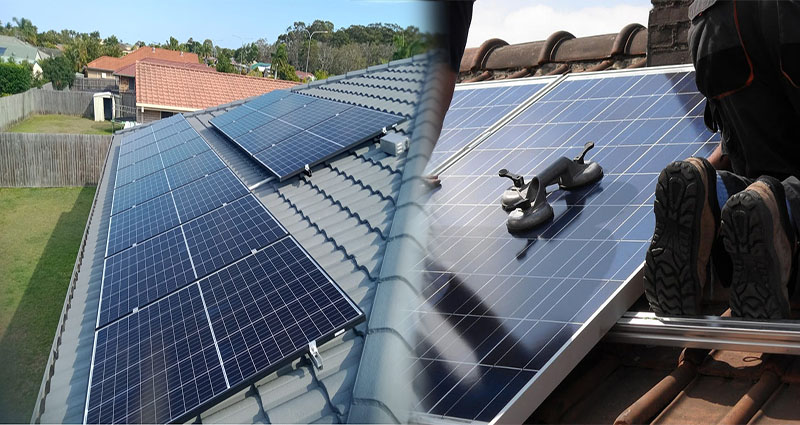With the increasing focus on renewable energy sources, many homeowners are considering residential solar panel installations as a way to reduce their carbon footprint and lower their electricity bills. In this article, we will delve into the benefits of residential solar panel installations and provide a cost analysis to help you make an informed decision.
Benefits of Residential Solar Panel Installations
- Reduce electricity bills: One of the primary motivations for homeowners to install solar panels is the potential savings on electricity bills. By harnessing the power of the sun, solar panels generate electricity that can be used to power various appliances and systems in your home. This can significantly reduce your dependency on the grid and save you money in the long run.
- Environmentally friendly: Solar energy is a clean and renewable energy source, unlike fossil fuels that contribute to air pollution and global warming. By installing solar panels, you will be reducing your carbon footprint and taking a step towards a more sustainable future.
- Increase property value: Homes with solar panels installed tend to have higher property values, as they are seen as more appealing and energy-efficient. If you ever decide to sell your home, having residential solar panels can be a strong selling point that attracts potential buyers.
- Energy independence: Solar panels provide homeowners with a sense of energy independence. Instead of solely relying on the grid, you can generate your own electricity and potentially even sell excess power back to the grid through net metering.
Cost Analysis of Residential Solar Panel Installations
It is essential to understand the costs associated with residential solar panel installations before making a decision. Here are the main cost components to consider:
- Equipment and installation: The cost of solar panels varies depending on the size of the system and the brand. Additionally, there are costs associated with the installation itself, such as mounting hardware, wiring, and inverters. On average, residential solar panel installations can range from $15,000 to $25,000.
- Incentives and rebates: Many governments and utility companies offer incentives and rebates to encourage residential solar panel installations. These can significantly offset the upfront costs. It is crucial to research and take advantage of any available incentives to make the installation more affordable.
- Maintenance and monitoring: Solar panels require minimal maintenance but may require occasional cleaning to ensure optimal efficiency. Some installation companies offer monitoring services to ensure your solar panels are operating at their best. These services may come at an additional cost.
- Return on investment: When analyzing the cost of residential solar panel installations, it is important to consider the long-term benefits and potential return on investment. While the upfront costs may seem significant, the savings on electricity bills and potential incentives can lead to a positive return on investment over time.
Residential solar panel installations offer numerous benefits, from reducing electricity bills to contributing to a cleaner and more sustainable environment. While there are costs involved, careful analysis of the overall investment and potential savings can help you make an informed decision. By harnessing the power of the sun, you not only reduce your carbon footprint but also gain energy independence and increase the value of your property. Consider consulting with reputable solar installation companies to guide you through the process and determine the best options for your home. Embrace the potential of solar energy and make a positive impact on both your finances and the planet.












